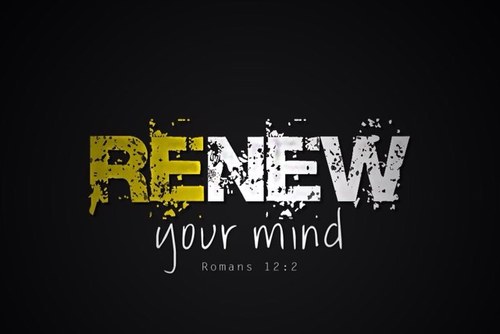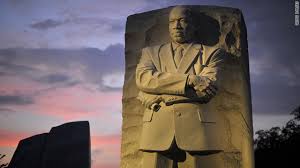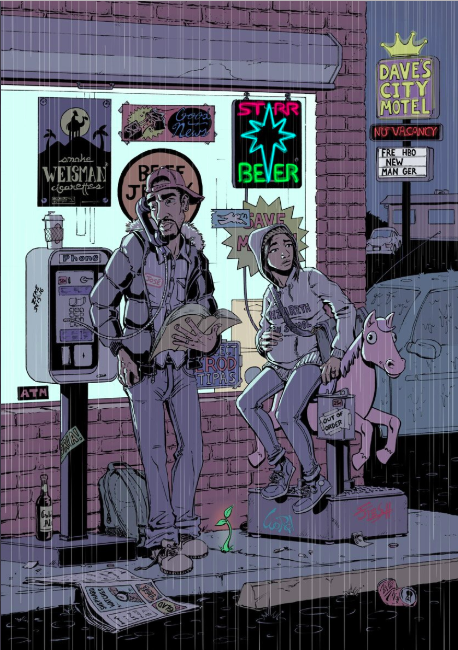 Repentance
Repentance Repent Before You Start Your Day
 Tuesday, June 9, 2020 at 11:06AM
Tuesday, June 9, 2020 at 11:06AM  It’s confession time: I've been working on a book about repentance. But the more I prepared to write this book the more I had to admit I knew little to nothing of repentance. I understood that in order to “become a Christian” I needed to admit that I was a sinner and rely on Jesus’s sacrifice to take away my sins. As I studied about repentance I learned the Old and New Testament concepts of repentance (retrace and rethink). But even after months of reading and study I knew nothing of howto repent as a regular part of life with God.
It’s confession time: I've been working on a book about repentance. But the more I prepared to write this book the more I had to admit I knew little to nothing of repentance. I understood that in order to “become a Christian” I needed to admit that I was a sinner and rely on Jesus’s sacrifice to take away my sins. As I studied about repentance I learned the Old and New Testament concepts of repentance (retrace and rethink). But even after months of reading and study I knew nothing of howto repent as a regular part of life with God.
Then one morning, in my daily reading of scripture, a thunderbolt from heaven leaped from the pages of Matthew’s gospel! I looked at the page again, just to be sure the paper had not been singed by the lightning (It hadn’t been burned, but I was on fire from the spark.) Be careful now before reading these verses; they are capable of changing your life:
Then Jesus said to His disciples, “If anyone wishes to come after me, he must deny himself, and take up his cross and follow me. For whoever wishes to save his life will lose it; but whoever loses his life for my sake will find it. (Mathew 16:24-25)
I know. The word repentance doesn’t appear in the text, but believe me: it’s there—especially for those of us who long to learn repentance as a lifestyle of walking with Jesus.
Perhaps you’ve thought of repentance as an after-the-fact maneuver, something you do when you realize you’ve messed up. Indeed, this is true: we should repent whenever we realize our failures. But what if repentance could keep us from sin? What if there was a daily habit could help us continually by keeping us from foolish choices and errors? If you have thought of repentance as a bedtime exercise, there’s good news: repentance can also be morning devotion.
Jesus provides three daily choices; morning-time choices that help us repent of the illusion that our life is our own. Every follower of Jesus must choose the way of Christ again and again. Indulge me in some foolishness:
Each morning Lydia opens her eyes to see the same ceiling, the same room, hearing the same sounds, and immediately her mind runs toward the new day: there are tasks to be done and appointments to be kept. But before her feet swing over the side of the bed and touch the floor there is a struggle to be met—and won: does this day belong to her, or Someone else? Lydia fights the most important battle of the day before any action is ever taken. Every single morning she rethinks her life in light of God’s kingdom. She is reminded of the three choices facing every disciple, every day:
Deny ourselves.
Take up our cross.
Follow Jesus.
Is Lydia really willing to yield her priorities, tasks, and schedule? For her (and us) it’s not a matter of doing different tasks or changing careers—it’s a matter of deciding who is boss again today, of repenting from the universal tendency to think we are the masters of our fate.
To settle these questions each morning is a way of repentance, of rethinking our life in light of the King and his kingdom. Three choices, made each morning, can grow us into mature disciples, capable of experiencing the with-God kind of life.
Have you ever wondered—in practical terms—what it means to deny yourself? J.B. Phillips renders the first choice “give up all right to himself.” To deny yourself does not mean torture or self-abuse. It does not mean to despise yourself. It means you make the ongoing choice that your life is not your own, that it is in fact God’s, and God is a better manager of your life than you are! To deny yourself means recognizing who holds the “rights” to your life.
Secondly, to take up your cross means to receive again the sacrificial posture modeled by Jesus, who did not consider his life his own, but instead thought of his life in terms of the mission he received from his Father. The cross was a part of that mission. Jesus went to Jerusalem, where he knew death awaited. He picked up the cross and carried it to death’s hill. He laid himself down in accordance with the Father’s wishes and gave his life up willingly. This, too, is our invitation.
God has a cross for each of his children, according to his highest hopes and best plan for each one of us. Our mission—our cross—will not be identical to Jesus’s. Only he was capable of shedding his blood for the sins of all humankind. But our cross will involve the same elements: understanding God’s plan for us, going where God leads, working through our own fears, and embracing the means of sacrifice he has chosen for each of us. “The cross” is no mere metaphor—we are, each of us, called to die to our self, die to our priorities, and place ourselves completely in the hands of the resurrection God.
Finally, we follow. To follow Jesus is to walk in the manner he walked. Have you thought about how Jesus conducted himself each day? Do you believe it’s possible for you conduct yourself in the same radical obedience as Jesus? To display the same grace he showed toward each person he met? To welcome whomever the Father brings into our path throughout the day?
His life was unique, and so is yours! What he said and did was his mission, fully submitted to the Father day by day. Imagine the possibilities of his lifestyle reproduced in you, in your setting, among your family and community, in your culture and country. It’s possible, especially when you embrace these three repentance choices each morning.
The Surprising First Word of the Good News
 Monday, February 17, 2020 at 09:32AM
Monday, February 17, 2020 at 09:32AM  Imagine receiving a message so good that it caused you to re-think your entire life. A total stranger has paid off your student loans; your abusive husband has turned a corner and now treats you like a queen; the doctors call to say the diagnosis was wrong and you don’t have cancer after all; the bank made a mistake years ago calculating your mortgage and sends you a notice that your house is paid off.
Imagine receiving a message so good that it caused you to re-think your entire life. A total stranger has paid off your student loans; your abusive husband has turned a corner and now treats you like a queen; the doctors call to say the diagnosis was wrong and you don’t have cancer after all; the bank made a mistake years ago calculating your mortgage and sends you a notice that your house is paid off.
All of these examples represent the best kind of news: no more coupon-clipping; your future is no longer clouded by debt; no more walking on egg-shells, afraid that some trivial event will anger your spouse; your fears of endless treatments and therapies vanish in a moment. A new reality has come from afar and has pitched its tent with you. The old reality is gone; and new day is born.
But you quickly discover a problem: the morning after the good news arrives you wake up still worried about money, still afraid that your husband will relapse, or you wake up in a sweat thinking about hospitals and death. And no wonder: we have spent years—even decades—thinking about life based upon these problems. Financial woes have been daily woes. Fear of abuse has been factored into every choice you make. Health concerns are like an unwanted houseguest who has moved in forever. Even though good news has come, old habits die hard, and it feels like habits of the mind have made a permanent place in your life. Reality has changed, but our ways of thinking have not. You are, in fact, free, but you are still trapped inside your head. You need one thing more: your old ways of thinking must be put to death.
To receive good news, to really receive it—to take it in and discover a new freedom—requires a new way of thinking. This new way of thinking has a Biblical name: repentance. I know: you thought repentance meant things like remorse, determination, trying harder, or feeling guilty.
Someone has lied to you. At its very core the word repent means “rethink your life.” The trick is: you have to have a valid reason to rethink your life. A positive mental attitude is not enough; simply trying harder won’t change your world. There must be some hard-core reality that changes the equation, wipes away the past, or presents a future filled with joy. Jesus presented this hard-core reality when he said, “The Kingdom of God is breaking in. Right here, right now.” He wasn’t describing some new program or advocating a new philosophy. Jesus proclaimed the world would be forever different because God had come down and he would do whatever was necessary to set people free.
God will not be stopped: the old order of things is scheduled to be demolished and a new order is becoming real. He invites us into this victory with these words: “The time has come. The Kingdom of God is at hand. Repent and believe the good news.” Grace comes with good news and a requirement: rethink your life because everything has changed. Repentance is a rational response to God’s grace. “Repent” is the first word of the good news. Faith and hope grow in us as we rethink our way of life based upon what God has already done. Good news requires that we rethink our way of life.
Have you recalculated yours in the light of his Kingdom? Jesus declared this gospel: a new reality was breaking into the world; the Kingdom of God was at hand. A new reality means new possibilities. The old ways of thinking and acting are no longer effective (if they ever were). In light of a new otherworldly reality we should re-think our methods, our preferences, and our lives.
Repent is not a word we heard much these days. In popular culture you might see an angry prophet holding a sign with the word splashed in blood-red paint. Even churches tend to lean toward the angry side of the word. I suspect that for many of us it’s difficult to separate the word repent from feelings of anger and judgment. But hidden beneath the surface of popular meaning is a spring of fresh water: the word repent signals an opportunity to begin again. Repentance is the ultimate mulligan: the do-over everyone is looking for, the chance to break from the past and discover a hope-filled future.
The good news of the Kingdom of God is not simply about going to heaven when we die. It’s about heaven breaking into earth right now (see Matthew 6:10). The king has come to set up his kingdom among us. The king is building his castle in the here-and-now, and he invites us to come live with him not after we die, but today, and each new day. So how do we get in on the new possibilities of a life with God, living in a new reality? The door to this new Kingdom reality is lettered in gold leaf (not blood-red) REPENT.
And yes, there’s more: repentance is not simply the doorway into life with God; it is the hallway that leads to every other room in the King’s castle. Let’s discover together these new-kingdom possibilities, the hope that life-change can be deep and lasting instead of the roller coaster ups and downs so common to diets and prosperity plans and organizational methods.
The good news is impossibly good! In order to live with impossibly good news on a daily basis is to re-train our minds to believe the impossible. This is one meaning of the word, “repent.”
Remembering the Prophet
 Monday, January 20, 2020 at 07:26AM
Monday, January 20, 2020 at 07:26AM  Today is Dr. Martin Luther King, Jr. Day in the United States. Everyone reveres the prophet after he’s dead. Whoever the prophet might be, in his day the prophet is rejected, ridiculed, scorned, misunderstood, misquoted, vilified, and in some cases shot in the head.
Today is Dr. Martin Luther King, Jr. Day in the United States. Everyone reveres the prophet after he’s dead. Whoever the prophet might be, in his day the prophet is rejected, ridiculed, scorned, misunderstood, misquoted, vilified, and in some cases shot in the head.“Woe to you, teachers of the law and Pharisees, you hypocrites! You build tombs for the prophets and decorate the graves of the righteous. And you say, ‘If we had lived in the days of our ancestors, we would not have taken part with them in shedding the blood of the prophets.’ So you testify against yourselves that you are the descendants of those who murdered the prophets. Go ahead, then, and complete what your ancestors started!" (Matthew 23: 29-31)
The God of Nobodies
 Friday, December 20, 2019 at 11:06AM
Friday, December 20, 2019 at 11:06AM  Image by Everett PattersonWhen really important people come to town, everyone one knows it. NBA stadiums sell out months before LaBron or Kobe show up for game time. When Kristen Stewart and Robert Pattinson do a personal appearance, hundreds of screaming fans will show up hours ahead of time. When the President visits your city, you can be sure the mayor will meet him at the airport and school children will be there to give the first lady flowers.
Image by Everett PattersonWhen really important people come to town, everyone one knows it. NBA stadiums sell out months before LaBron or Kobe show up for game time. When Kristen Stewart and Robert Pattinson do a personal appearance, hundreds of screaming fans will show up hours ahead of time. When the President visits your city, you can be sure the mayor will meet him at the airport and school children will be there to give the first lady flowers.
But the Christmas story shows us that God does things differently. You might even call his way sneaky. The most important person in the history of the world snuck into town late one night and definitely did not stay in a five-star hotel. Actually, Jesus was smuggled into Bethlehem through the womb of a teenage girl, who gave birth in a barn. That’s different.
We all know the story of Christmas: the baby, the barn, the shepherds and magi. Hidden inside that familiar story is the surprising revelation that God’s way is to ignore the bigshots and use nobodies instead. Just count the nobodies:
Mary was a teenage girl from a small town. In Bible times women were not important people, and teenagers were even lower on the scale. Mix in her pre-martial pregnancy, and you’ve got a real nobody on your hands. But Mary was God’s choice. She conceived the baby Jesus through the power of the Holy Spirit. God considered her somebody important and gave her a pretty tough assignment!
Joseph was a nobody, too. He was just a working man across town from Mary’s family. He was faced with a choice between trusting God or protecting his small-town reputation. But reputations belong to important people, and most of the important people were in Jerusalem. Joseph said “yes” to shame, yes to love and yes to God, so God chose Joseph to act as a foster-father to the Savior of the world.
Shepherds are not important people, just the opposite: second-shift schmucks who work outdoors. Back in that day watching sheep was not exactly a rock-star kind of gig. Yet they were the first guests invited to the celebration.
The Magi? nothing more than rich pagan astrologers: it didn’t matter if they had money; they were foreigners. Foreigners have the wrong religion, the wrong clothes, and the wrong sacred books. Elizabeth & Zechariah: a kindly old couple engaged in harmless religious activity. They are the kind of people society ignores--unless they are driving too slow on a the highway. Anna & Simeon: Alone and elderly, they were two people almost completely invisible to everyone. Everyone except the Holy Spirit. One and all, they were people on the outside of society.
The secret message inside the Christmas story? God invites the nobodies. And when God invites you to the table, he provides everything you need. The powerful people, the beautiful people, and the cool kids might not make it to the celebration. They’re welcome, but they might be too busy building their own kingdoms. Meanwhile God’s kingdom is filling up with the people no one notices.
This season, if you are a nobody—rejoice! You are not far from the Kingdom of God.
(This post is an excerpt from my Christmas devotional, 25 Days of Christmas)
Welcome to the Playroom
 Wednesday, October 16, 2019 at 08:43AM
Wednesday, October 16, 2019 at 08:43AM  I’ve given up asking my 5th-grader to clean her toy closet. I’m no match for her wisdom and heart.
I’ve given up asking my 5th-grader to clean her toy closet. I’m no match for her wisdom and heart.
Like most children, she resists cleaning-up anything. And like most children, she has perfected the art of procrastination. No sweat: I naturally presumed all she needed was some parental involvement, as in, “Don’t worry, Sweetie, I’ll help you get started.”
We both moved across the carefully-decorated bedroom to the door of a walk-in closet turned playroom. It would be a simple task of organizing the chaos. I stepped into the kid-kingdom of her toy closet and suggested clearing away the broken toys first.
“This doll, for example,” I said. “Her arm is missing. Let’s throw her away.”
My daughter stared at me and waited just long enough to make sure she had my complete attention:
“Would you throw me away if I had a broken arm?”
“Don’t be silly. Of course not.”
She lifted the doll from my hands and set it back in the same spot near the door.
“This is Clarice,” she instructed. “She stays near the front of the closet to let all the other toys know you don’t need to be perfect to live here.”
My daughter straightened Clarice’s hair and took a moment to make sure Clarice stood up straight, facing the closet door.
“Clarice used to ride this motorcycle until she had an accident.” (Full disclosure, a cousin ripped the doll’s arm off several months earlier). “So, because she can’t ride it anymore, she is now the one who helps other people feel at home here. She says ‘hello’ to everyone and shakes their hand.” (And that would be a left-handed handshake, for obvious reasons.)
Each step into the closet, each toy on each shelf, revealed story after story: each toy, whether whole or broken, had a role to play in this closet-world. Her closet is a veritable Island of Misfit Toys. A toy might have come into my daughter’s world with one function, but time and chance, accident and fate often overruled its intended purpose. In her eyes, these are the everyday dangers of toy-life. Apparently it’s not so different inside the playroom or out.
My daughter has developed the ability repurpose any toy and discover a new life in its broken condition. It is her joy to do so. For her, it’s not about function, but relationship—she doesn’t throw her friends away simply because they are broken. Who does that to a friend?
(This article first appeared in 2014)

